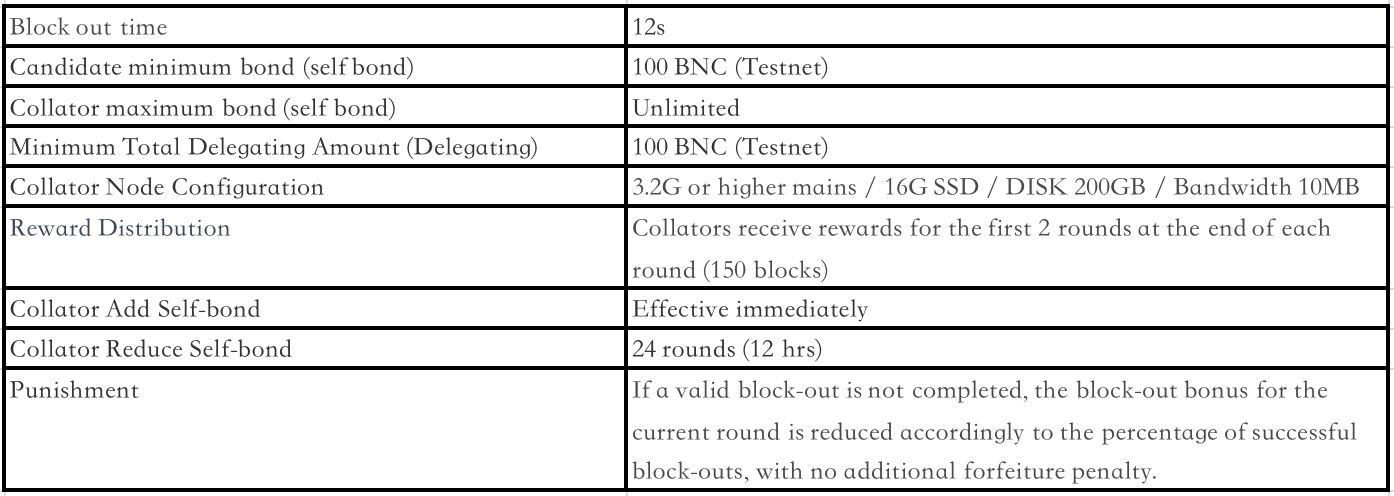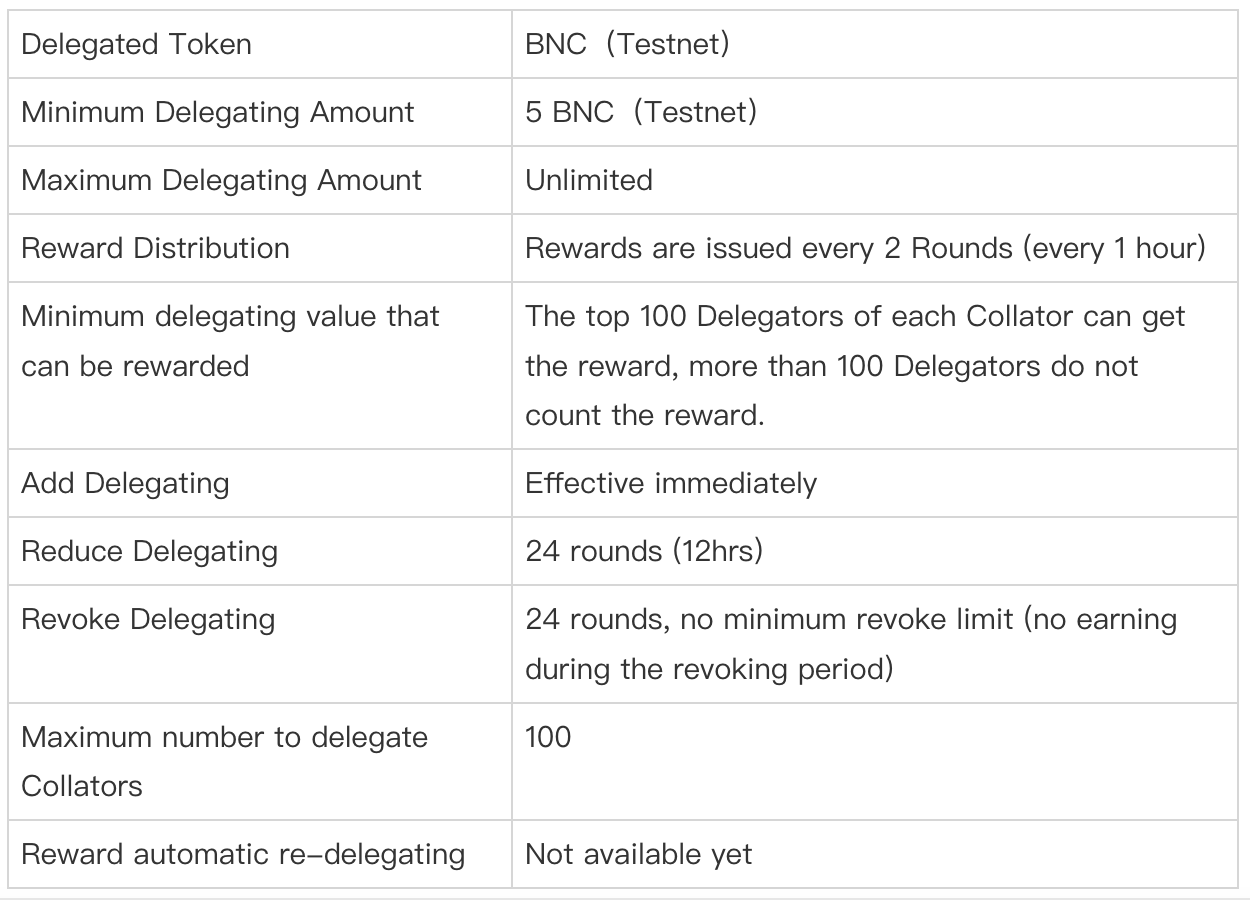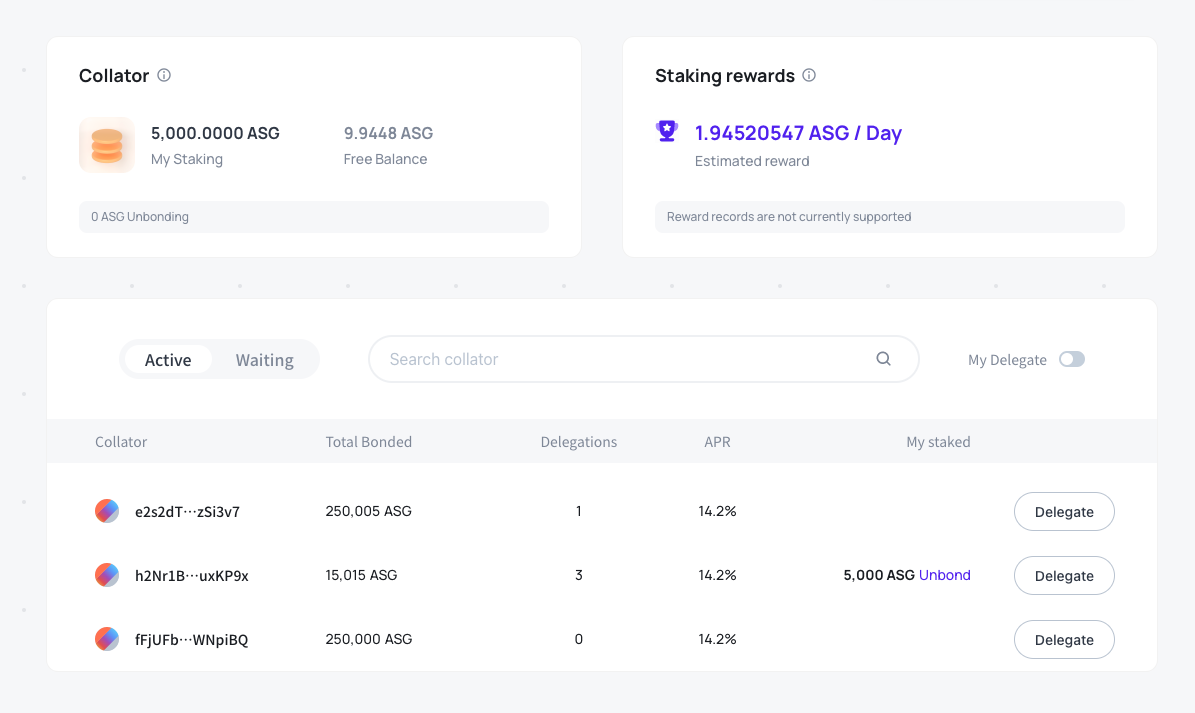Bifrost collator node public beta test is coming!
Participate in delegation and run collator to share 20,000 BNC prize pool
What is Collator?
Polkadot has designed four main types of roles to structure their consensus mechanism. These are:
-
Nominator — each Polkadot parachain has their own collator who’s responsible for submitting transactions and packaging blocks.
-
Collator — once collators submit their blocks, a validator assigned by the relay chain is responsible for verifying that these blocks are submitted correctly.
-
Validator — who delegates their $DOT or $KSM to the validator.
-
Fishman — who is responsible for checking and reporting illegal blocks.
Through such a design, Polkadot achieves a balance between the autonomy of parachains and shared security.
Most parachains are designed to be isomorphic to polkadot relay chains, i.e., they use the NPoS consensus mechanism, which means that each parachain has its own delegator, and Bifrost is no exception. Delegators of Bifrost chains can delegate collactors using BNC.
Why does Bifrost need a Collator?
After bidding for the first slots in Kusama in July 2021, Bifrost has been steadily producing blocks as a Kusama parachain for 7 months. During this time, cross-chain interoperability and asset transfers between parachains have been completed.
However, Bifrost’s Collator is still running in a centralized manner. By opening up the registration of our Collator, we’re hoping to start decentralizing our block collection process. And with a large number of quality collators, Bifrost dApp will become more stable and robust.
But before that, we need to run a full round of testing. And that’s exactly why we’re excited to launch our Collator’s public beta today!
The Bifrost Collator Node Public Beta Test
On February 24, 10 am UTC, Bifrost will launch our Collator node on a public beta test. The launch will be split in two phases:
-
Collator node operation
-
Delegator BNC (Testnet) staking
Bonding Earning Allocation
During the public test period, the test token is $BNC (Testnet). $BNC (Testnet) itself has no financial value and is only used for testing purposes.
Referring to the 800,000 $BNC (Testnet) Collator bonding earnings per year, the Collator commission is 40% (320,000 Test Token) and the Delegator earnings are 60% (480,000 Test Token).

The Collator’s commission is allocated based on the number of blocks produced by active nodes and the number of delegator staking, while the delegator’s earning is calculated based on the number of blocks produced in different Collator nodes and the number of staking BNCs (Testnet).
Prize Pool
In this public test, there is a total of 20,000 $BNC (Mainnet) prize pool, the specific division of the prize pool is determined by the number of total $BNC (Testnet) obtained from the following events:
-
Collator: Active collator’s block reward, active collator’s own bonding
-
Delegator: Delegated active collator
You can receive $BNC (Testnet) by entering !drip < BNC address > in the Bifrost Telegram faucet group, or by entering !top or !rank < BNC address > to check the current testnet participation ranking and the expected reward of the splitted $BNC.
Collator Rules
The Collator Rules will run for a limited period only, between February 24 and March 11, 2022.
- Collator Parameters

- How to participate?
To become a Collator during the beta test, you need to stake at least 100 $BNC (Testnet), but the minimum total staking amount is $100 BNC (Testnet).
The number of active collators will grow at different stages. After registering a Collator, you will be placed in the candidate waiting queue. Depending on the number of $BNC (Testnet) you bonded and your delegator stake, you will be promoted to active collator at different stages, and will start block production.

Learn more about how to become a Bifrost Collator on our Wiki documentation.
Delegator Staking
The Delegator staking will run for a limited period only, between February 24 and March 11, 2022.
- Delegator Parameters

- How to participate?
During the public test, anyone will be able to pick up a $BNC on the testnet through Bifrost Taps and participate in the public test.
Just complete the order (example: !drip < BNC address >) on the Bifrost faucet telegram group to receive $BNC (Testnet), and only 60 $BNCs (Testnet) per telegram account, every 12 hours. Join the Bifrost faucet Telegram group!

Once you have received your $BNC (Testnet), you can nominate a collator by:
-
Accessing the Bifrost dApp
-
Switching to the testnet
-
Selecting the collator you wish to delegate, and delegating (up to 100) $BNC (Testnet).
You can also find further details and a full tutorial on the Bifrost Wiki documentation.
Discord Channel
We’re excited to welcome you on our Bifrost Discord Collators channel to discuss Collator & Delegator topics, give feedback on potential bugs you encountered during testing, and more!
FAQ
- How to choose a Collator?
Delegators can be chosen based on:
-
The configuration of the Collator’s node operation
-
The $BNC amount they staked on the testnet
-
By looking at the stability of their node operations
- How do I check my personal delegation ranking?
You can check the top 30 delegations by sending a command !top on our Telegram channel. You can also check your ranking by sending command !rank< BNC address>.
- What are the fees for bonding and unbonding respectively?
During the beta test period, fees for both bondings and unbondings are 0 $BNC on the testnet.
- What is the maximum total Collator cap?
There is no limit for total Collator candidates — anyone who meets the technical configuration and the number of bondings is eligible to become one.
However, Bifrost sets the number of active collectors who are eligible to produce blocks.
Initially, we’ll set the first 16 Collators, which we expect to double every 4 days, based on the actual test situation. So that:
-
16 active collectors by 2/24–2/28
-
32 active collectors by 2/28–3/4
-
64 active collectors by 3/4–3/11
- What are the minimum requirements to become a Collator?
In order to become a Collator, you need to:
-
Register a $BNC address
-
Meet the minimum node configuration
-
Meet the minimum amount of your own bondings and the minimum total number of bondings
- What are the benefits of becoming a Bifrost Collator?
After the official launch of Bifrost mainnet Collator — in addition to sharing the $BNC in the Collator prize pool — Collators can also help Bifrost provide network security and stability, and gain experience in the operation of parachain collectors.
- Can delegator stake on multiple Collators?
Yes, delegators can delegate up to 100 Collators during the Bifrost collator beta